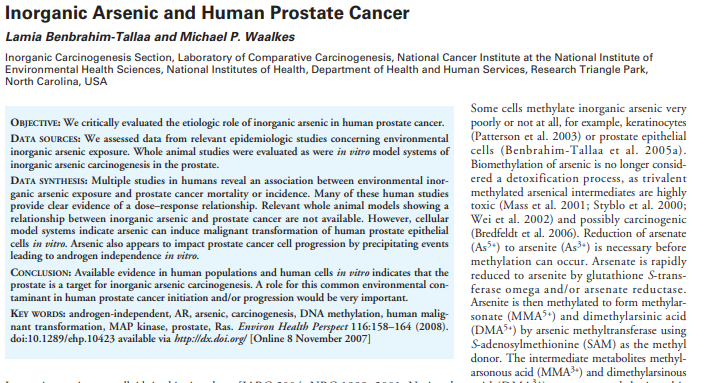Inorganic Arsenic and Human Prostate Cancer
Researchers at the National Cancer Institute at the National Institute of Environmental Health Sciences, National Institutes of Health, Department of Health and Human Services, Research Triangle Park, North Carolina, USA looked at the role of inorganic arsenic in the pathophysiology of prostate cancer. Data from relevant epidemiologic studies concerning environmental inorganic arsenic exposure was obtained. Whole animal studies were evaluated as were in vitro model systems of inorganic arsenic carcinogenesis in the prostate. Multiple studies in humans reveal an association between environmental inorganic arsenic exposure and prostate cancer mortality or incidence. Many of these human studies provide clear evidence of a dose–response relationship. Relevant whole animal models showing a relationship between inorganic arsenic and prostate cancer are not available. However, cellular model systems indicate arsenic can induce malignant transformation of human prostate epithelial cells in vitro. Arsenic also appears to impact prostate cancer cell progression by precipitating events leading to androgen independence in vitro. Available evidence in human populations and human cells in vitro indicates that the prostate is a target for inorganic arsenic carcinogenesis. A role for this common environmental contaminant in human prostate cancer initiation and/or progression would be very important.
Full text article available at:

